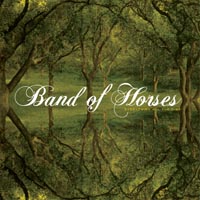2024-09-11
The Enduring Legacy of Ella Fitzgerald & Louis Armstrong
Ella Fitzgerald and Louis Armstrong are two of the most beloved musical performers of all time. Their joyous music has managed to transcend generations, leaving fans swooning over their smooth jazz tunes and infectious vocals. Yet behind the classic renditions, there is a critical component to evaluate each singer's influence and impact on popular culture. Therefore, this blog post will breakdown both the positive attributes as well as the weaknesses of Ella Fitzgerald & Louis Armstrong's music in order to create an objective assessment of what made them some of the greatest musicians ever known.
There are few names in the world of music as recognizable as Ella Fitzgerald and Louis Armstrong. Both have left an indelible mark on jazz, and their influence remains felt even today. From Armstrong's gravelly vocals to Fitzgerald's soaring range, their music transcended boundaries of race and social class. Yet, like all artists, their work has been subject to scrutiny. In this blog post, we'll take the time to examine the impact of their music, considering both the positive and negative aspects of their work.
One of the most impressive aspects of Armstrong's music is his skill as an improviser. He was known for his ability to create melodies on the spot, infusing his music with a sense of spontaneity and excitement. This ability helped to define the genre of jazz, demonstrating the potential for creativity and invention within the form. However, his music has also been criticized for its simplistic lyrics and reliance on formulaic structures. While his music may not always be the most poetic or experimental of jazz, Armstrong remains a towering figure, his musicianship synonymous with the genre itself.
Ella Fitzgerald's contributions to jazz were equally important. Her virtuosic range and emotive delivery helped to redefine the role of the singer within the genre. Fitzgerald was a master of scatting, a form of improvised vocalization that incorporates nonsensical syllables and rhythms. This form of singing was a direct reflection of the improvisational nature of jazz, and remains a defining characteristic of the genre. However, Fitzgerald was not without her flaws. Critics have noted that her music can sometimes be overly polished and commercial, diluting the rawness and authenticity at the heart of the genre.
It's clear that both Fitzgerald and Armstrong helped to break down barriers in the world of music. Their collaborations were groundbreaking, and their legacy continues to inspire new generations of musicians. However, it's important to consider the context in which their music was made. Both were performing at a time when racial segregation and discrimination were rampant, and while they were able to overcome these obstacles to achieve mainstream success, their music is not without controversy. Some have criticized Armstrong's decision to perform in minstrel shows, while others have noted Fitzgerald's reluctance to embrace social activism.
At the end of the day, the music of Ella Fitzgerald and Louis Armstrong remains beloved by millions. Their talents were unparalleled, and their influence on jazz and popular music cannot be denied. While they were not perfect, they showed us what could be achieved through hard work, talent, and dedication. Their music is a testament to the power of creativity and collaboration, and remains an enduring legacy that will continue to inspire listeners for generations to come.
There are few names in the world of music as recognizable as Ella Fitzgerald and Louis Armstrong. Both have left an indelible mark on jazz, and their influence remains felt even today. From Armstrong's gravelly vocals to Fitzgerald's soaring range, their music transcended boundaries of race and social class. Yet, like all artists, their work has been subject to scrutiny. In this blog post, we'll take the time to examine the impact of their music, considering both the positive and negative aspects of their work.
One of the most impressive aspects of Armstrong's music is his skill as an improviser. He was known for his ability to create melodies on the spot, infusing his music with a sense of spontaneity and excitement. This ability helped to define the genre of jazz, demonstrating the potential for creativity and invention within the form. However, his music has also been criticized for its simplistic lyrics and reliance on formulaic structures. While his music may not always be the most poetic or experimental of jazz, Armstrong remains a towering figure, his musicianship synonymous with the genre itself.
Ella Fitzgerald's contributions to jazz were equally important. Her virtuosic range and emotive delivery helped to redefine the role of the singer within the genre. Fitzgerald was a master of scatting, a form of improvised vocalization that incorporates nonsensical syllables and rhythms. This form of singing was a direct reflection of the improvisational nature of jazz, and remains a defining characteristic of the genre. However, Fitzgerald was not without her flaws. Critics have noted that her music can sometimes be overly polished and commercial, diluting the rawness and authenticity at the heart of the genre.
It's clear that both Fitzgerald and Armstrong helped to break down barriers in the world of music. Their collaborations were groundbreaking, and their legacy continues to inspire new generations of musicians. However, it's important to consider the context in which their music was made. Both were performing at a time when racial segregation and discrimination were rampant, and while they were able to overcome these obstacles to achieve mainstream success, their music is not without controversy. Some have criticized Armstrong's decision to perform in minstrel shows, while others have noted Fitzgerald's reluctance to embrace social activism.
At the end of the day, the music of Ella Fitzgerald and Louis Armstrong remains beloved by millions. Their talents were unparalleled, and their influence on jazz and popular music cannot be denied. While they were not perfect, they showed us what could be achieved through hard work, talent, and dedication. Their music is a testament to the power of creativity and collaboration, and remains an enduring legacy that will continue to inspire listeners for generations to come.
Tag: Ella Fitzgerald & Louis Armstrong, music artist, best songs, artist career
2022-11-01
P.O.D.: A Musical Biography
What do you know about P.O.D...read more
2024-10-13
The Good and Bad Reviews of Evergreen: A Closer Look
Evergreen is a musical artist that has encountered both praise and criticism for their work. Whether it’s the vibrant melodies they create out of traditional folk instruments, or the passionate poetry featured in their lyrics, there's little denying that Evergreen possesses an undeniable allure to fans from virtually every genre of music...read more
2022-11-01
The Musical Journey of Julia: From Her Humble Beginnings to International Fame
When we talk about influential artists in the music industry, we cannot overlook Julia. Her music has transcended borders and impacted many people...read more
2022-11-01
The Madness Musical Biography: From Ska to Pop
When we talk about the British ska-pop band Madness, the first thing that comes to mind is their endless catchy tunes and show-stopping performances. But behind the madness was a group of musicians who played a critical role in the ska revival of the late 1970s and early 1980s in the UK...read more
2023-10-21
The Strange and Somewhat Goofy Moments in Band of Horses' Discography
Band of Horses is an artist who's music has long been held in high regard, especially amongst those with a taste for thoughtful yet captivating melodies. But today we're not here to talk about the things that make Band of Horses great—we have a bone to pick! That's right, it's time for us to take a closer look at the strange and sometimes downright goofy moments found within the soundscapes of this iconic musician...read more
SUGGESTED PLAYLISTS








